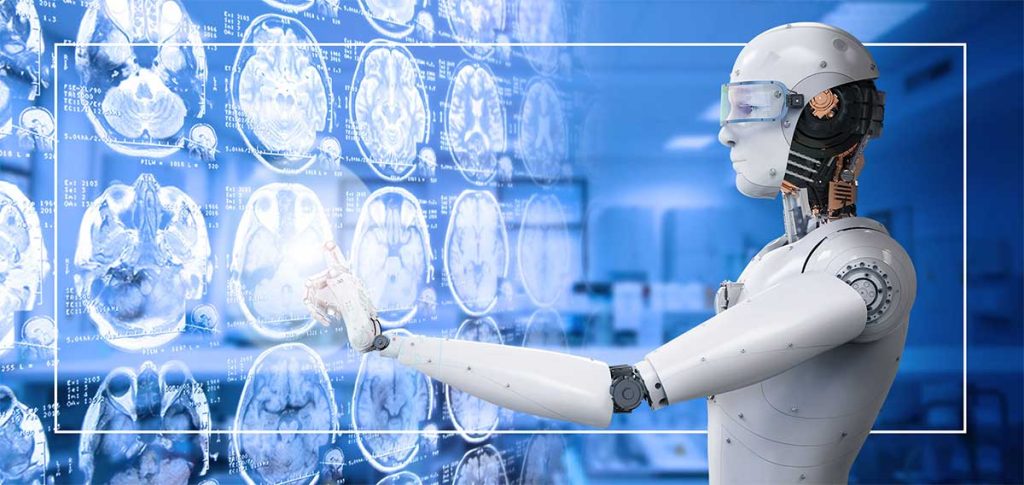Table of Contents
Revolutionizing Healthcare: The Incredible Benefits of Artificial Intelligence
In an era where technology is advancing at an unprecedented pace, artificial intelligence (AI) has emerged as a game-changer in many industries. One of the fields where AI is making profound strides is healthcare. From diagnosing diseases to improving patient care, AI is transforming the way we approach healthcare. Let’s delve into the incredible benefits of AI in the world of medicine.
1. Early Disease Detection and Diagnosis
AI algorithms have the remarkable ability to analyze vast amounts of medical data quickly and accurately. This includes patient records, medical images, and even genetic information. With this power, AI can detect diseases at an early stage, often before symptoms manifest. For example, AI-driven image analysis can identify anomalies in medical images like X-rays, CT scans, and MRIs, aiding in the early diagnosis of conditions such as cancer, heart disease, and neurological disorders.
2. Personalized Treatment Plans
Every patient is unique, and AI can help create personalized treatment plans based on an individual’s genetic makeup, medical history, and current health status. This tailoring of treatments can lead to better outcomes and reduced side effects.
3. Predictive Analytics for Healthcare Management
AI can analyze data from various sources, including electronic health records, to predict disease outbreaks, patient readmission rates, and the optimal allocation of resources. This proactive approach can enhance hospital management, improve patient care, and reduce healthcare costs.
4. Drug Discovery and Development
Traditional drug discovery is a time-consuming and costly process. AI is accelerating drug discovery by identifying potential drug candidates and simulating their effects on biological systems. This can significantly reduce the time and resources required to bring new medications to market.
5. Virtual Health Assistants
AI-powered virtual assistants are providing patients with access to healthcare information and support 24/7. They can answer medical questions, schedule appointments, and even monitor patients’ health remotely. This enhances patient engagement and reduces the burden on healthcare providers.
AI can automate administrative tasks such as billing, coding, and appointment scheduling, allowing healthcare professionals to focus more on patient care. This efficiency can improve the overall healthcare experience for both providers and patients.
7. Robotics in Surgery
Robotic surgical systems, driven by AI, enable surgeons to perform complex procedures with precision and minimal invasiveness. These systems can enhance surgical outcomes, reduce recovery times, and minimize the risk of complications.
8. Drug Adherence Monitoring
AI can help patients stick to their medication regimens by providing reminders and tracking their adherence. This can be especially beneficial for individuals with chronic conditions who require ongoing treatment.
9. Mental Health Support
AI-powered chatbots and apps are offering mental health support by providing users with resources, monitoring their emotional well-being, and offering therapeutic interventions. This is a crucial development in addressing the growing mental health challenges faced by many.
10. Data Security and Privacy
AI also plays a pivotal role in securing sensitive patient data. It can detect and prevent data breaches, ensuring that patient information remains confidential and protected.
Frequently Asked Questions (FAQ)
Q1: Is AI in healthcare safe and reliable?
A1: Yes, AI in healthcare is developed with a strong focus on safety and reliability. AI systems undergo rigorous testing and validation to ensure their accuracy and effectiveness in medical applications.
Q2: Can AI replace human healthcare professionals?
A2: AI complements healthcare professionals but does not replace them. It enhances their capabilities by providing data-driven insights and automating routine tasks, allowing professionals to focus on complex decision-making and patient care.
Q3: Is AI affordable for all healthcare settings?
A3: The cost of implementing AI in healthcare varies, but as technology advances and becomes more widespread, the costs are expected to decrease. Many healthcare organizations are already benefiting from AI solutions.
Q4: How does AI protect patient data and privacy?
A4: AI systems are equipped with advanced security measures to safeguard patient data. They can detect and prevent data breaches, ensuring that sensitive information remains private and protected.
Q5: What’s the future of AI in healthcare?
A5: The future of AI in healthcare looks promising, with ongoing advancements in areas like early disease detection, telemedicine, and drug discovery. AI will continue to play a pivotal role in improving patient care and healthcare management.
In conclusion, artificial intelligence is revolutionizing healthcare by enhancing early disease detection, personalizing treatments, improving healthcare management, and streamlining administrative tasks. It is empowering both healthcare providers and patients, ultimately leading to better health outcomes and a more efficient healthcare system. As AI continues to evolve, we can expect even more remarkable advancements in the field of healthcare, further improving the quality of care and saving lives.



